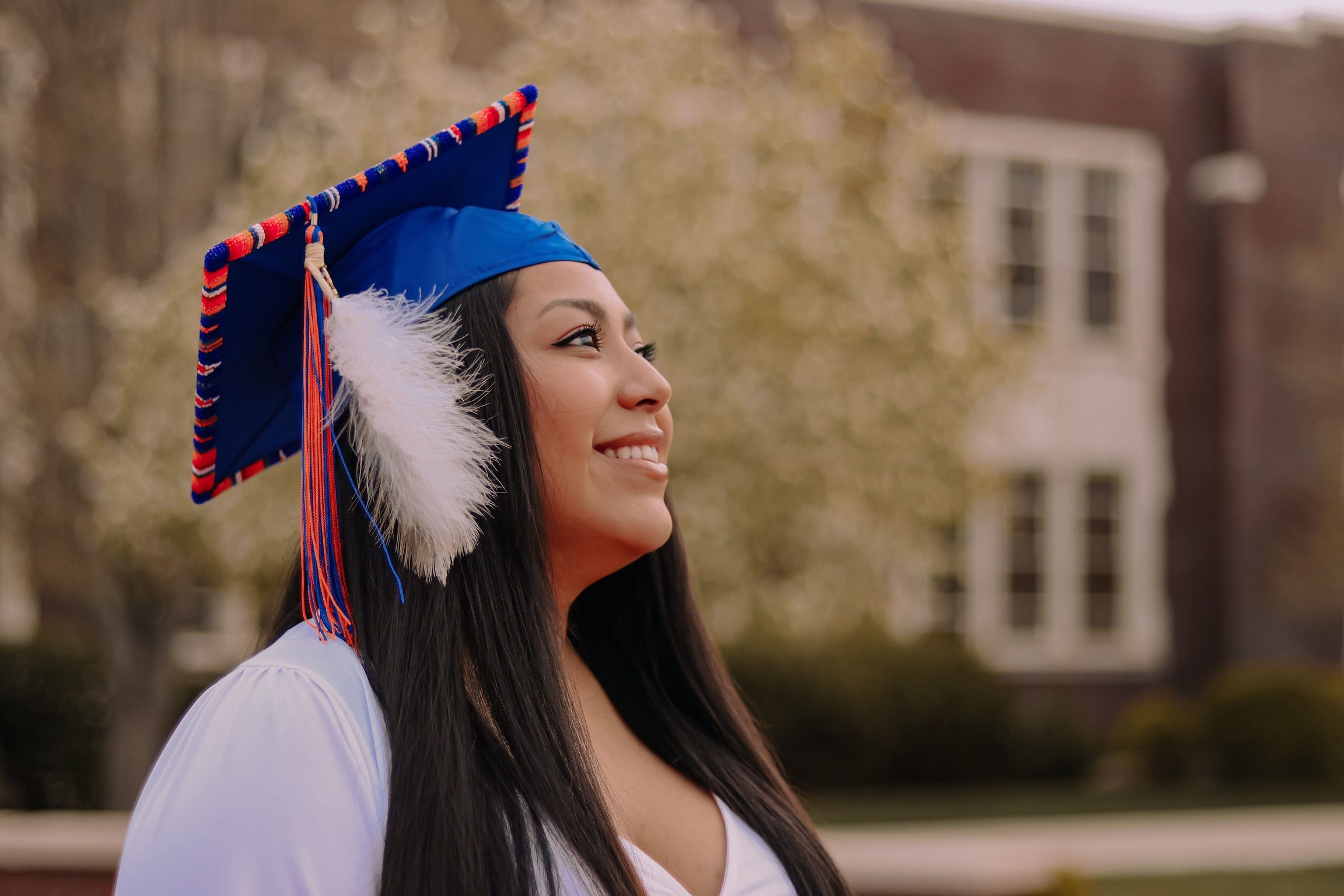
On Monday, April 25, I sat down with Barbe Tom over video chat to get to know her, to better understand the importance of events, like the Seven Arrows Powwow, that happen here at Boise State. And, boy, did she deliver. I left that conversation feeling like I understood a mere drop in the bucket of the Native student experience, but feeling hopeful at the work that could be done to help every student feel at home on campus. And Barbe gave me the distinct impression that she wants to put in work to make positive change. I strongly believe that she will do just that, and then some. So, let’s take it back to the beginning.
Barbe, who originally grew up on the outskirts of Dever, Colorado, split her time growing up half in a suburban world and half with her Native community. In her own words, “I grew up back and forth, so I always kind of grew up in a non-profit background.” She spent time getting to know two sides of life, on and off of Native lands. And it was through that diverse experience that she learned the impact of those who support and empower Native communities.
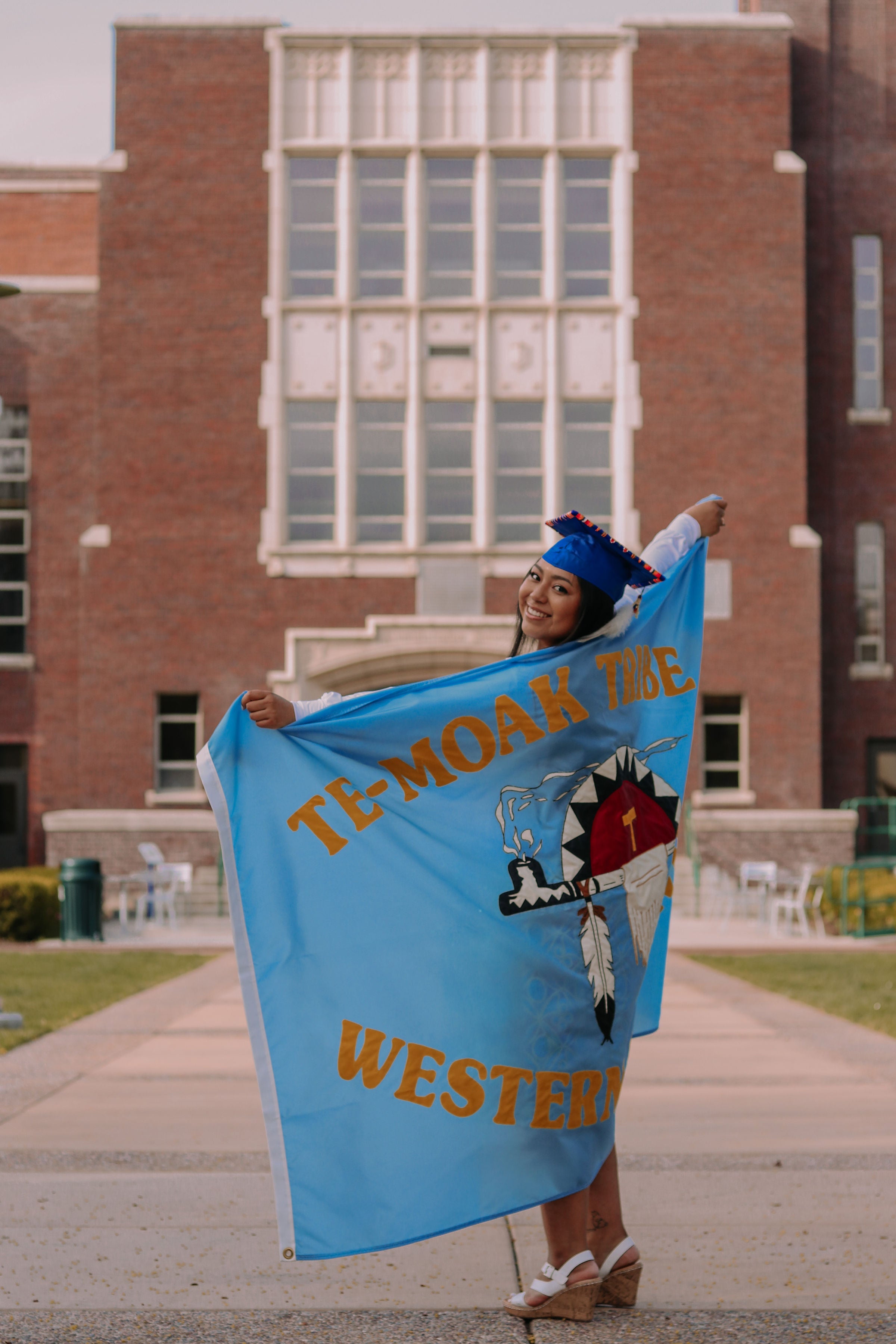
Now that she’s at the end of her college career (about to receive her bachelors in business administration with a nonprofit minor, and certificate in leadership and human relations), she looks back on the people who shaped her back in her hometown and here in Idaho. For her, non-profit work for Native people has always been very hands-on. She said, “In the organizations I’m part of, we’re all still relatively small and looking for those resources. And so, it’s going out and doing the fundraising, looking at grants, and things like that.”
It was the strength of these small groups who were willing to go out and do the hard groundwork which made such an impact on her growing up—and still makes an impact on her today. So much so, that she’s decided she wants to give back to her Native community in the same way. That’s the work she wants to continue after graduation this May.
At the start of her college journey, it wasn’t a seamless transition from the life she was used to, to life as a Boise State student. “Definitely, at the start of my college career, it was more tough I think because I moved from an area that was more diverse. It was a much bigger Native population, it was more involved. And so, when I moved here, to a predominately white campus, with not a lot of resources and support it was like a shock of, ‘Maybe I should start hiding myself again. Or not wearing those things in case.’”
She talked about the advice she wished she would have known as a new student, “Don’t be scared to incorporate or start combining your cultural life with your suburban life. I think growing up as more of a suburban Native, there’s the pressure to separate it due to other people’s, like, being uncomfortable and not willing to learn. But, as I’m starting to get older and in more of a professional field, I think it definitely stands out and puts me at an advantage at certain points. And just to keep going on it. We shouldn’t have to hide ourselves.”
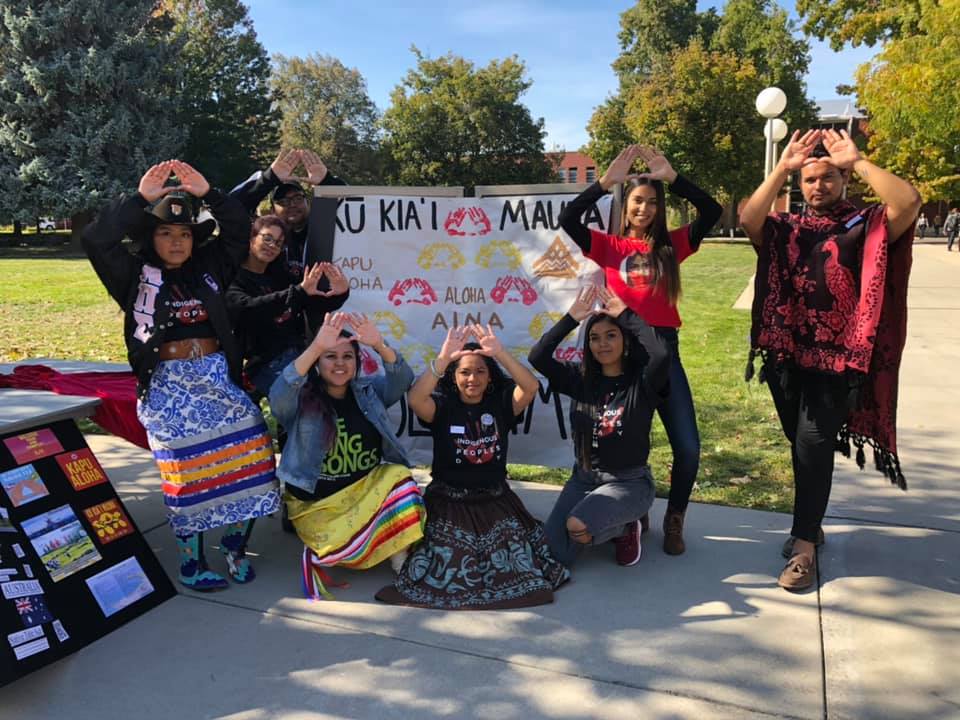
I was in awe of her willingness to be candid with me as Barbe mentioned feeling like an “artifact” at times in her life; something for people to “Ooh” and “Ahh” at. In an area where students might not come into contact with Native people every day, it’s important for us all to think about each other’s experience. She wants people to know, “Indigenous students are still a part of every day. When I wear a beaded medallion or have some type of regalia on it’s like, ‘Oh, what’s that? Can I touch it?’ And I want students to actually realize that I am a person here getting my degree. [Natives are] not a shocking factor.”
She feels that Boise State, and being a committee member for events like the Seven Arrows Powwow, has undoubtedly set her up for a successful future in non-profit work, “I also have a little part-time job with the Kesler Keener foundation that kind of goes into it. They’ve given me an insight into what they go through, even though I’m just a social media person, I’m still able to kind of partake in what they’re going to go through to get whatever they need.”
In fact, some of her most cherished college memories happened through the work she’s done and the events she’s helped put on. She remembers a moment from a previous powwow, “It was the night before powwow, and it was really late, two other members (I now consider them family) and I had stayed late to get candy bags together for the tiny tots. We just sat there and laughed, had late dinner/treats, and enjoyed the moment before tomorrow got chaotic. It reassured me that hard work pays off and to enjoy the work we had done.”
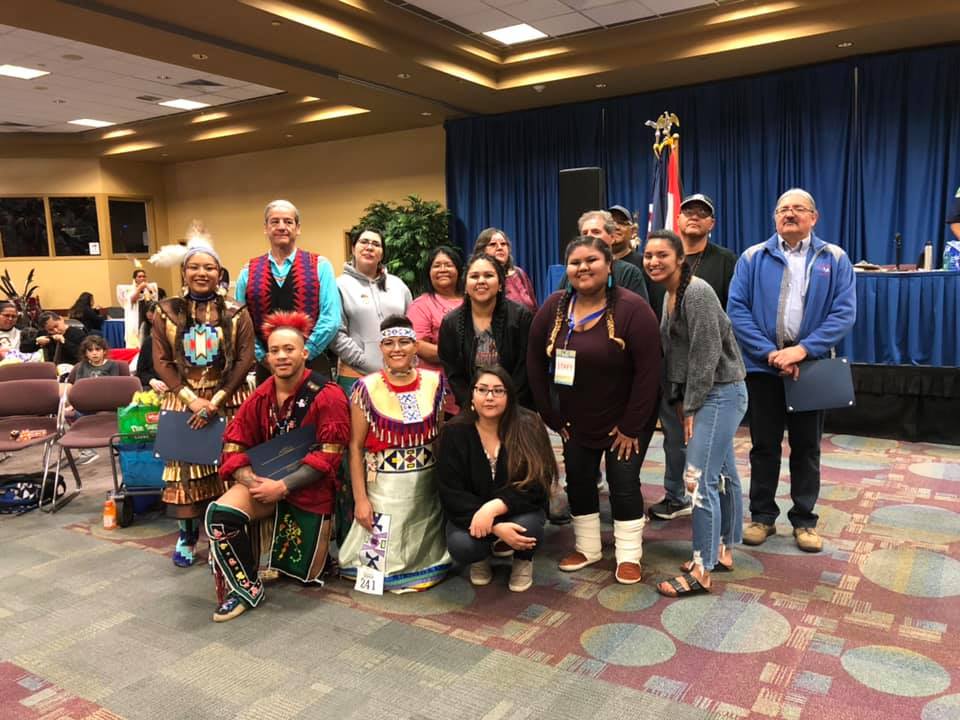
Barbe has been a part of the powwow circle her entire life, so it felt like a “comfort sense” to be involved with the powwow scene here at Boise State. “Being able to contribute to an event this big not only helped me grow as a young Native, but helped create a sense of family within us Native students because of the challenges and achievements we had gone through together.” She joined the Intertribal Native Council back in 2018, right when members were prepping for the homecoming parade, and has been involved ever since.
Barbe comes across as strong, fearless, independent. She spoke a few times on how important being a leader is to her and even said she already missed the leadership classes she took as part of her degree. In regards to the powwow, she also took some leadership skills from it, “I became a stronger leader out of all of this. I learned aspects about myself that worked in my favor and learned some aspects that I can grow on to become a better person.”
Seven Arrows Powwow is a chance to experience Native American culture, “Showcasing the customs of Native Americans in full regalia, the competition draws performers from all over the U.S. and Canada. The Seven Arrows Powwow attracts participants from all over the northwest and Canada. The event is planned with the student organization Intertribal Native Council and the support of the community. Powwow also features demonstrations, storytelling, and craft vendors.” The event invites volunteers to sign up and help with all aspects of the day.
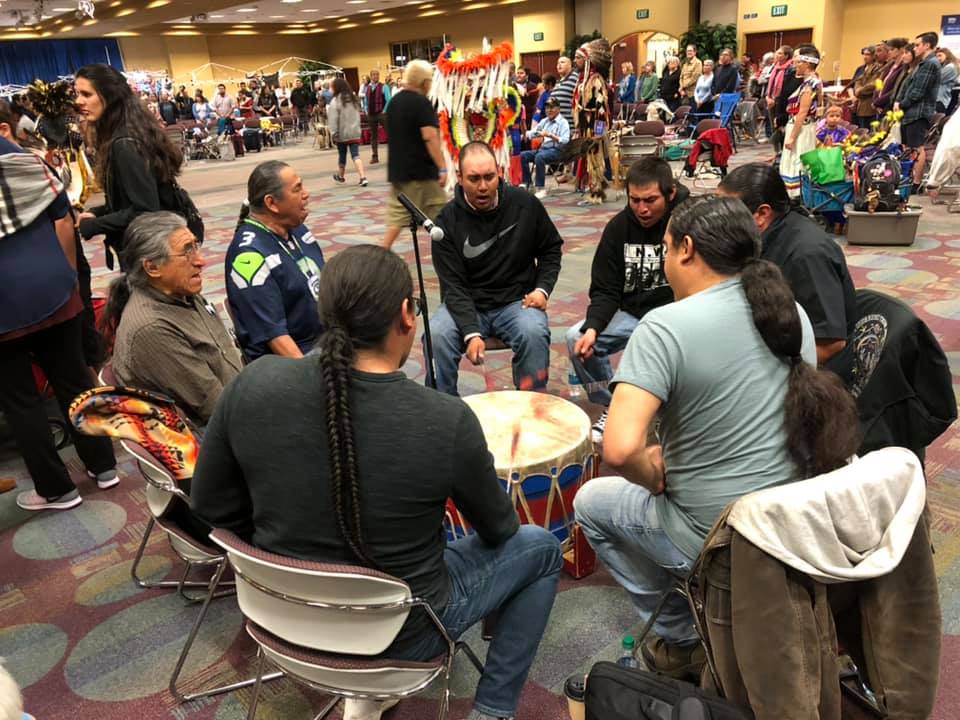
A typical powwow day starts off with breakfast with her family to get the day started right. As a committee member, the day can get pretty hectic trying to squeeze in time to have a good meal. After breakfast, she heads to campus before any vendors, spectators, or dancers arrive and handles any last minute details which need attention. “The rest of the day kind of goes in a blur as I move to wherever I am needed whether it be in the ballroom or external areas.” Then, at the end of the day she helps clean and organize whatever they can to prepare for the second and final day of the event.
If she has a message for others, it’s this, “I want others to come into powwow with an open mind and a good heart. Us Native people have lived behind stereotypes our whole lives and most of it is not true or doctorized. Respect those around you. If you want to take pictures, ask permission. Don’t touch things without permission as we are very protective over our regalia/things. And if you have hesitation about your actions or thoughts, definitely reflect and ask permission as there is probably a reason you might be hesitant. It is a privilege, not a right to be able to participate in cultural events.”
I asked Barbe to go a little deeper and she generously complied. When asked if stories or features on organizations and students are actually helpful, she said, “I think it’s the way of how you address it. Because there are those instances like, ‘Oh, we just want to do a Native American can we just throw you in there?’ or ‘Oh, we want to touch more culturally to be more involved, can we throw you in there?’ I think that’s what the difference is between actually getting to know (and more in depth) about my life and as, like, an Indigenous student, rather than it’s just someone there that’s just taking up space.”
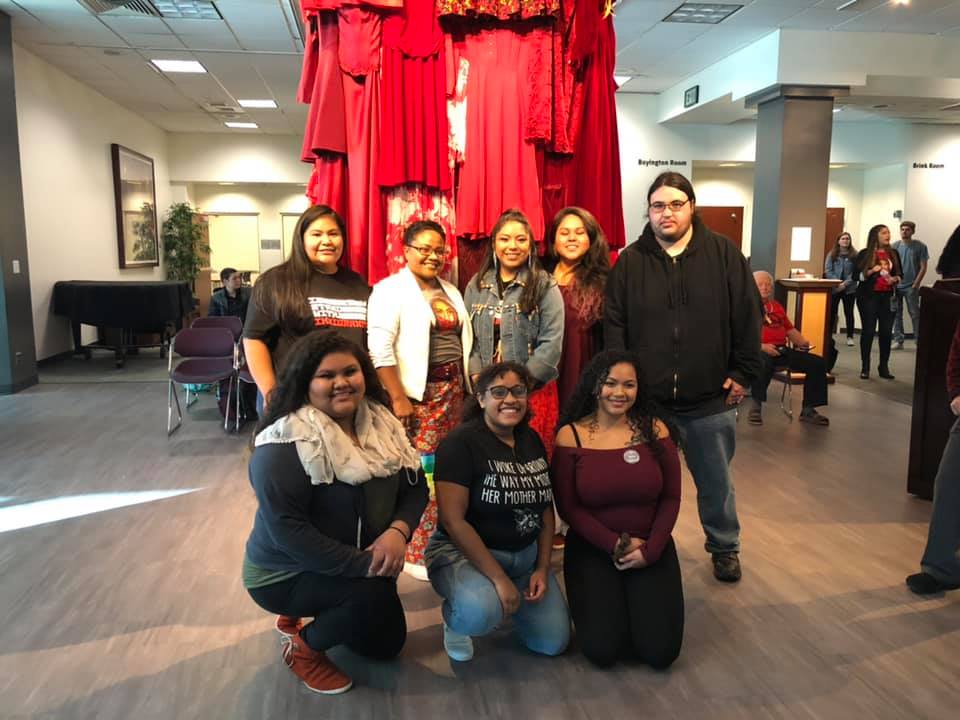
She’s active, not only in her community doing essential work, but also in her free time. She says with so many activities, work, and schoolwork, she likes to just get out of the house whenever she can, “I know it drives my boyfriend crazy because he’s very much a homebody, but I love experiencing new things; new festivals, I love farmers markets because you never know what you’re going to see and stuff like that. If I do want to be home I’m usually creating something. I do beadwork most of the time. I started picking up sewing a bit. I just get frustrated because I don’t know how to use the machine, so it’s mostly the beading because it’s my own two hands.”
As I left the Google Meet with Barbe, I felt there was much I would take away from our conversation. We only spent 30 minutes talking, but she spoke without hesitation and with a palpable kindness, which certainly left an impression on me. Even through the screen, I could feel the warmth of her smile, and the attentiveness and decisiveness of a great leader.
Author
-
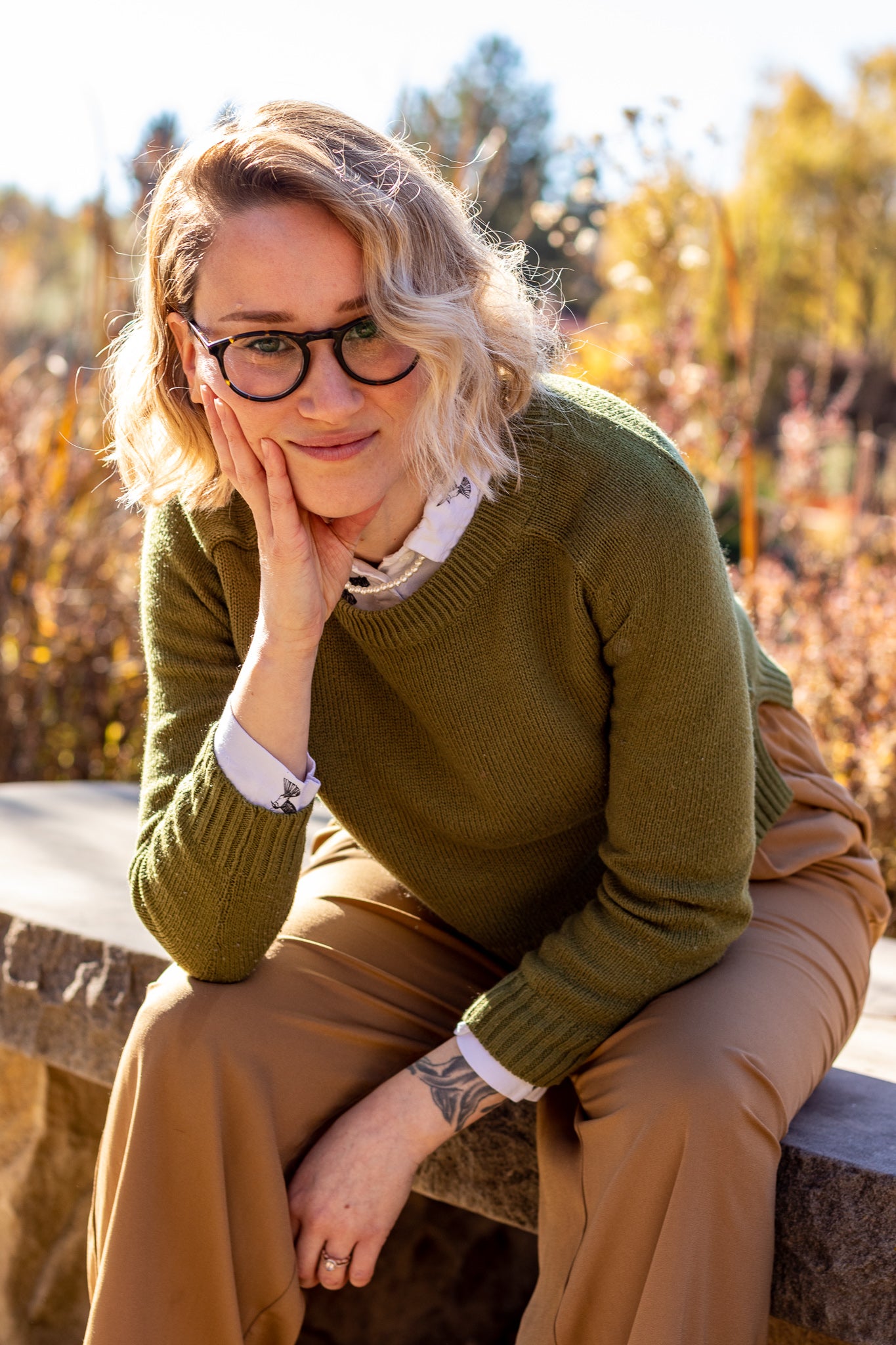
Trisha